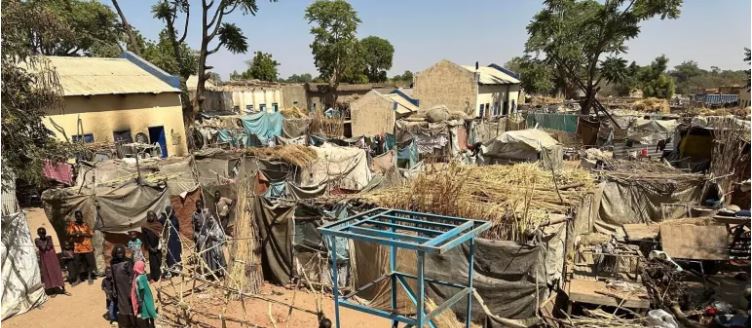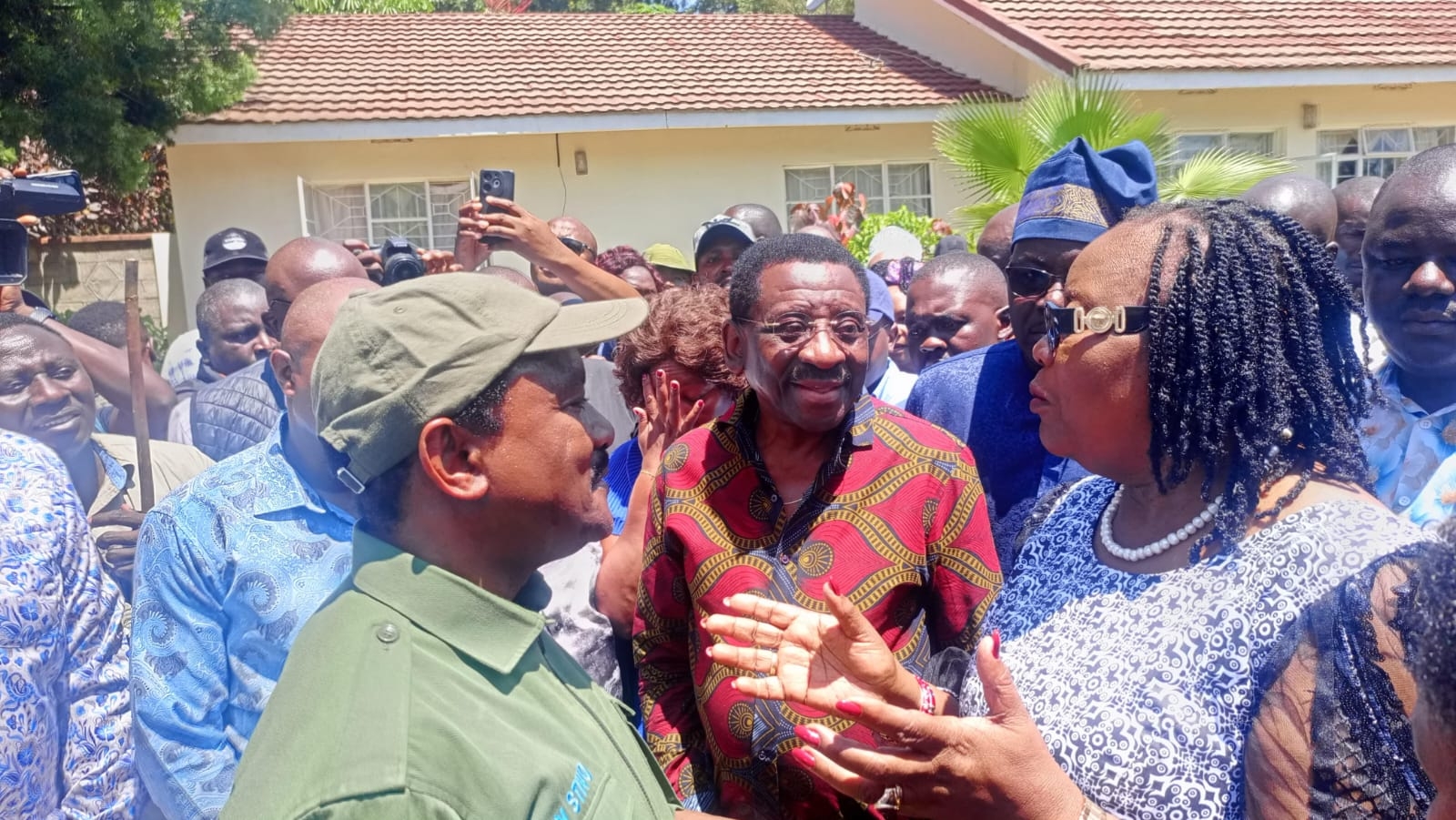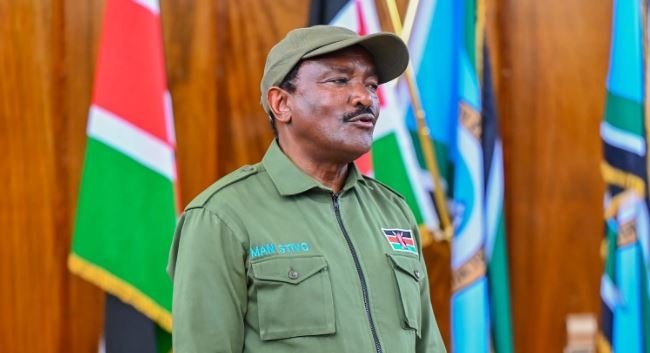The conflict in Sudan between the Sudanese Armed Forces and the paramilitary Rapid Support Forces should no longer be seen as a power struggle in Khartoum.
Like a wildfire, the Sudan war could easily spread to neighbouring countries and destabilise the broader Horn of Africa, Sahel and Red Sea regions. It threatens to morph into a regional conflict that could be impossible to contain.
There has been an escalation in the war, as Port Sudan came under attack for several days.
The assaults, including drone strikes, reportedly by the RSF, have torched the country's biggest fuel depots and damaged its main gateway for humanitarian aid.
The Intergovernmental Authority on Development and the UN condemned this latest development, expressing concern the attacks posed a threat to civilian lives and threatened to worsen the humanitarian situation.
Port Sudan is crucial for humanitarian operations, including the transportation of food and the much-needed medical supplies. It is under the control of the Sudanese Armed Force.
As the war rages on, the stakes are regional and international. The collapse of Sudan would send shockwaves across Africa and the Middle East, affecting trade routes in the Red Sea, refugee corridors into Europe, and the fragile architecture of African peacekeeping.
Let’s first look at the Rapid Support Forces, a once government-backed militia that has transformed into a well-armed and autonomous force. Over three years, this force has recruited many foreign fighters and mercenaries from Chad, the Central African Republic, South Sudan and Ethiopia.
These fighters are not only battle-hardened, but also are armed with sophisticated weaponry, reportedly supplied by the United Arab Emirates. Armaments turn them into a dangerous force with regional consequences.
The countries from which these fighters are drawn are already fragile, plagued by civil strife and ethnic divisions.
Chad is confronting a rebellion led by the Front for Change and Concord in Chad, which attempted to overthrow the government in 2021 and remains a potent threat.
The Central African Republic is fractured by armed groups such as the Union for Peace in the CAR and Anti-Balaka militias, despite international peacekeeping efforts. South Sudan, the world’s youngest country, is still grappling with internal divisions, especially with factions such as the Sudan People’s Liberation Movement-in-Opposition, resisting central control.
Ethiopia is emerging from a bloody civil war in Tigray, only to face new threats from the Oromo Liberation Army and the Fano militia, an Amhara nationalist group engaged in fierce clashes with the federal government.
These conflicts are not isolated. They are deeply interconnected, and the Sudan War has become a catalyst for their escalation.
In a scenario where the RSF is defeated at the end of the Sudan War, the foreign fighters will likely return to their countries, taking with them both weapons and war experience.
This could only exacerbate the conflicts in those countries and tip the balance towards prolonged instability.
The returning mercenaries could easily integrate into local rebel movements, destabilising already volatile states. Their combat skills, new tactics, and modern weaponry will make them formidable actors in future confrontations.
There is also the Somalia question. The city of Bosaso in Somalia’s Puntland region has recently become a critical hub for military operations, backed by the United Arab Emirates, according to intelligence briefs.
One of the most concerning aspects of these activities is the use of Bosaso as a logistical and transit point for delivering foreign mercenaries and military support to the RSF.
Bosaso Airport has reportedly been used as a stopover for Colombian mercenaries recruited by the UAE, who are then transported to Sudan to fight alongside RSF forces.
Previously, Colombian mercenaries were also observed operating at the Puntland Maritime Police Force (PMPF) base in Bosaso. Their presence indicates a long-standing pattern of foreign military involvement in Puntland’s security structure.
Additionally, the UAE has established a military base in Bosaso where it has installed an Israeli-made EL/M-2084 radar system. Satellite imagery from early March reveals that the Active Electronically Scanned Array Multi-Mission Radar was installed near the airport.
With a range of 256 nautical miles, this radar is primarily designed to monitor the Gulf of Aden and supports Israel’s air defense posture against Yemen’s Houthi movement. The presence of such technology raises the risk of Somali territory becoming entangled in the ongoing Israel-Houthi conflict.
Media cite publicly available air traffic data indicating that the UAE is increasingly using Bosaso airport to supply the RSF.
Together, these developments reveal that Bosaso is no longer just a Somali port city — it has become a logistical lifeline for the RSF’s war efforts in Sudan, enabling both manpower and advanced surveillance support.
The Sudan War portends not only a security threat but a humanitarian catastrophe in the making. Arms trafficking, cross-border insurgencies, and refugee flows are already increasing.
If Sudan collapses into total anarchy, Ethiopia, South Sudan, Chad, and the Central African Republic could follow, plunging the region into a multi-front crisis.
The international community must take a keener interest in Sudan to avert such a catastrophe in Africa.
The international community, especially African Union, IGAD, the Arab League, and Turkey must act now. Ceasefire talks alone are no longer sufficient.
What’s needed is a bold, coordinated strategy to prevent Sudan’s war from becoming the next great African catastrophe.



















